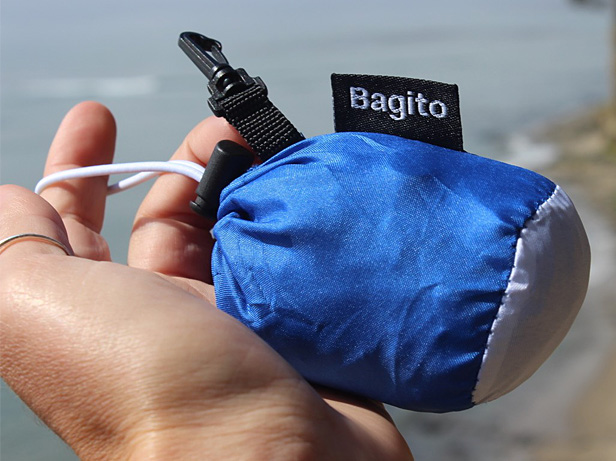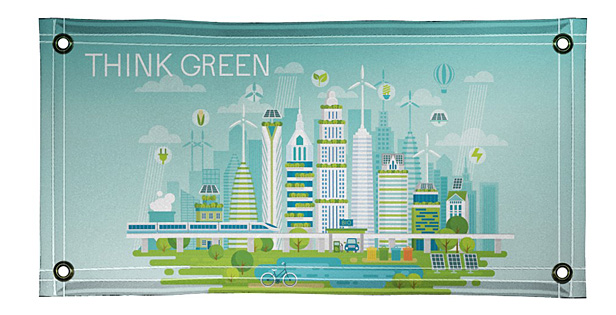Sustainability October 18, 2023
Why PVC-Free Products Are a Growing Sustainability Trend
PVC is one of the most frequently used types of plastic, but activists say it can pose health and environmental risks.
Polyvinyl chloride, or PVC, is one of the most common types of plastic – but it’s also one of the most toxic, according to environmentalists. In fact, Greenpeace once dubbed it the “poison plastic.”
It’s used in a host of everyday household products, and the promotional products space is no exception; PVC is found in vinyl banners, lunchboxes, water bottles, backpacks and other gifting items.
Increasingly, however, consumers are searching for PVC alternatives, and companies are striving to remove PVC from their product lines as part of ongoing sustainability efforts. Top 40 supplier Gemline (asi/56070), for example, noted in its most recent CSR report that it plans to be 100% PVC-free by 2025. And Jonathan Isaacson, executive chair of Gemline, says the company is already 93% of the way toward that goal.
Why is PVC so bad for the environment?
Vinyl chloride, a gas emitted during the production of PVC and one of the chemicals that spilled in the Ohio train derailment earlier this year, is a known carcinogen and has been linked to increased cancer risk. Research has shown that PVC production – and disposal at the end of its life – can leach toxins into the environment, posing threats to wildlife and humans, with the potential to damage the immune system and disrupt hormones.
“In terms of our environment, over 80% of the plastics worldwide are not being recycled and end up in landfills, the ocean or simply on the ground,” says Mitchell Barlas, president and founder of Certified B Corp Bagito (asi/37896). “Plastics are degrading faster these days due to the stronger ultraviolet radiation and are releasing these toxic chemical compounds directly into the soil, ground, water and oceans.”
What’s more, “PVC has that smell when it’s new,” says Andy Keller, a member of the Promo for the Planet advisory board and CEO and founder of B Corp ChicoBag (asi/44811). “I think everyone knows that smell; however, not everyone knows about plasticizers that are added to make the resin harder or softer. These are commonly known as phthalates, and they have a negative impact on living organisms as endocrine disrupters.”
What are good alternatives to PVC?

Bagito (asi/37896) offers reusable bags made from recycled polyester (rPET).
Many promo firms have already started taking action to cut their PVC use, opting for safer options. Earlier this year, StickerYou (asi/89791) released Eco-Safe stickers, made of 40% post-consumer recycled PET. Printed using water-based latex inks, they contain no harmful solvents, PVC, chlorine or phthalates, and they’re recyclable.
Top 40 supplier Showdown Displays (asi/87188) provides vinyl banner options made from PVC-free materials, plus fabric banners with zero PVC content, according to President Kevin Walsh.
“There are many good alternative materials now available that are non-toxic and can be reused, recycled or upcycled,” Barlas says, adding that bamboo, for example, is a great eco-friendly choice for reusable cutlery sets.
Polyurethane is also a better option for products than PVC, Isaacson notes.

This single-sided banner (304970) available from Showdown Displays (asi/87188) is made from a recyclable 100% PVC-free material.
What should distributors ask suppliers about PVC?
“The best place to start would be to ask if the product is PVC-free,” Walsh advises. “Alternatively, you can inquire if the product is Prop 65 Approved, signifying that it has undergone testing to exclude harmful phthalates and heavy metals. However, it’s crucial to ensure the product is labeled as ‘Approved,’ as some are only ‘Compliant,’ which means they still contain these hazardous elements, but they bear a warning label indicating their potential risks.”
Keller, who notes that all ChicoBag products are free from phthalates and other types of “forever chemicals,” suggests distributors ask suppliers to provide testing and audit reports proving their products are safe and made ethically.
Will the PVC-free trend continue to grow?
“I do think the trend will continue,” Keller says, “especially as we learn more about the health impacts of various classes of chemicals.”
Issacson agrees: “Everyone isn’t necessarily fully educated, but customers are becoming more aware and want something better.”
And as more companies join this mindset, it will create a path to eliminate a toxic legacy that could be potentially hazardous for generations to come.
“When we started to get rid of PVC, I knew it was problematic but had no idea how bad,” Issacson says. “It’s important to think of the next generation, and PVC is not good for our children. When kids are trying to do good things for the environment, Gemline wants to feel proud and provide good things, too.”

Promo for the Planet is your destination for the latest news, biggest trends and best ideas to help build a more sustainable and socially-responsible industry.
